Bernard-Henri Lévy
Nacimiento : 1948-11-05, Béni Saf, Oran, French Algeria
Historia
Bernard-Henri Lévy is a French public intellectual. Often referred to in France simply as BHL, he was one of the leaders of the "Nouveaux Philosophes" movement in 1976. In 2015, The Boston Globe has said that he is "perhaps the most prominent intellectual in France today".

Director
Después de la invasión rusa, el director filmó una película, "Pourquoi l’Ukraine", que documenta los primeros meses de la experiencia de Ucrania y se transmite por ARTE. Este nuevo documental continúa donde la otra quedó. Es una bitácora realizada en la segunda mitad del año 2022 y donde se ha registrado todo: pequeños y grandes hechos, azares, emociones, testimonios de vivos y duelos, crónica del frente y de las ciudades bombardeadas, retratos.
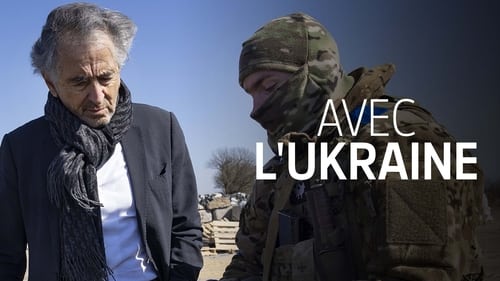
Director
Close to the ground, from the front line to the civil resistance, Bernard-Henri Lévy films the war in Ukraine and urges Europe to act. A poignant immersion that sounds like a call for help, in the name of democracy.
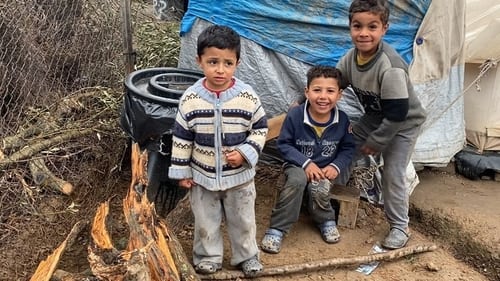
Director
An old-time war reporter, philosopher and writer, BernardHenri Lévy is sent by a group of newspapers (Paris Match, La Repubblica, The Wall Street Journal, Der Stern, and others) to bear witness and report from places in the world where suffering and misery is at its peak: where wars are going on under our noses, the world’s fate is being determined, and no one, it seems, is paying attention. An unflinching look at the most urgent humanitarian crises around the globe.

Self
During the 2019 European election campaign, Bernard-Henri Levy sets out to save Europe by travelling across the continent with a play written and performed by him. The film follows the relentless defender of the EU along the roads of some 20 intertwined countries, but also goes out of the theatres to meet situations and faces. The black and white aplomb of the character BHL underlines, in contrast, the colourful dress of Princess Europe, whose frail fabric is woven of unevenly distributed wealth, memories of war and promises of struggle.
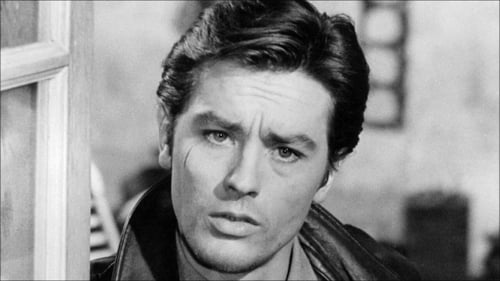
Self
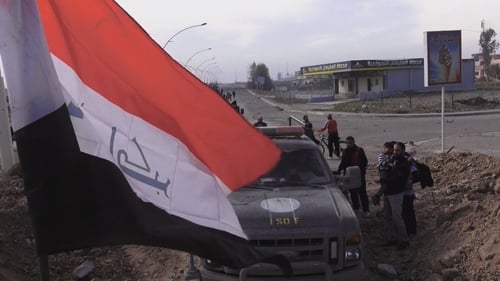
Director
Durante semanas un equipo de televisión, encabezado por el reportero iraní Soran Qurbani, convivió con las fuerzas especiales iraquíes bautizadas como la Golden Division para retratar la guerra y el terror en el que vive Irak.
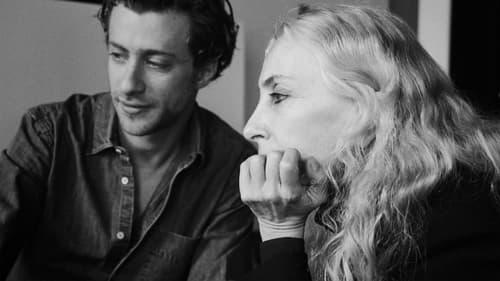
Self
Director Francesco Carrozzini creates an intimate portrait of his mother, Franca Sozzani, the legendary editor-in-chief of Italian Vogue. From the ridiculous to the sublime, her astonishing but often controversial magazine covers have not only broken the rules but also set the high bar for fashion, art and commerce over the past 25 years. From the legendary “Black Issue" and the “Plastic Surgery issue" Sozzani remains deeply committed to exploring subject matter off limits to most in order to shake up the status quo and occasionally redefine the concept of beauty.
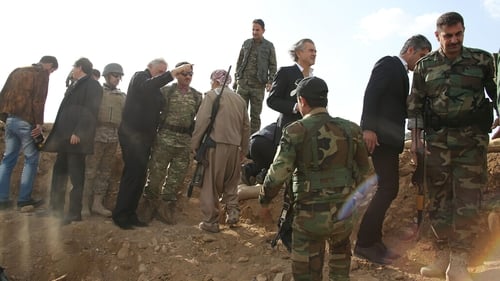
Self
From July to December 2015, with a camera team in tow, Bernard-Henri Lévy journeyed 1,000 km along the frontline separating Iraqi Kurdistan from Islamic State troops. The journey resulted in an illustrated logbook offering a special insight into an unfinished war with a global impact. Alongside the Peshmergas – Kurdish fighters imbued with a spirit of unfailing determination in their fight against obscurantism and jihadism, the film takes us from the heights of Mosul to the heart of the Sinjar mountains, passing the last Christian monasteries threatened with destruction along the way. A tale peopled by real characters, men and women whose faces are rarely seen...

Director
From July to December 2015, with a camera team in tow, Bernard-Henri Lévy journeyed 1,000 km along the frontline separating Iraqi Kurdistan from Islamic State troops. The journey resulted in an illustrated logbook offering a special insight into an unfinished war with a global impact. Alongside the Peshmergas – Kurdish fighters imbued with a spirit of unfailing determination in their fight against obscurantism and jihadism, the film takes us from the heights of Mosul to the heart of the Sinjar mountains, passing the last Christian monasteries threatened with destruction along the way. A tale peopled by real characters, men and women whose faces are rarely seen...
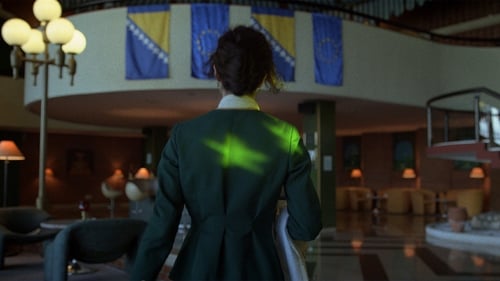
Theatre Play
En el hotel Europa, uno de los más grandes de Sarajevo, van a recibir a una delegación de diplomáticos europeos para conmemorar el centenario del atentado que inició la Primera Guerra Mundial. En las cocinas se prepara una huelga de los trabajadores, que llevan dos meses sin cobrar. Mientras tanto, una periodista filma un programa de televisión en la azotea y un hombre, que podría formar parte (o no) de la delegación, ensaya un discurso en su habitación.
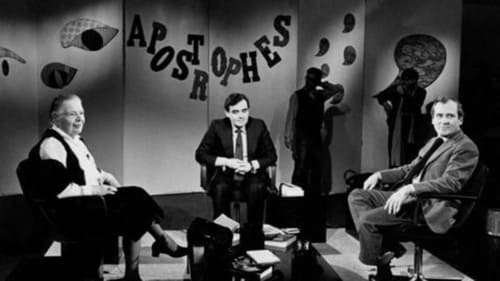
Self (archive footage)
40 years of "Apostrophes". Hours and historical meetings, Pierre Assouline has composed an anthology of the best extracts presented in the form of a primer, which he had commented on by a surprised Bernard Pivot.
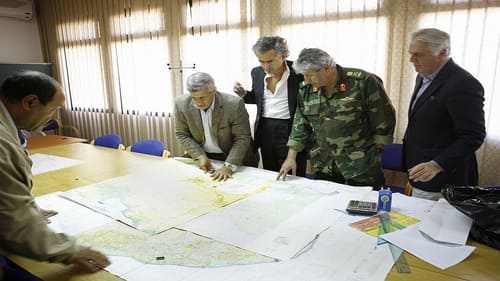
Writer
The war in Libya as seen from the inside: both on the scene and as discussed by world politicians. After thirty years of chasing wars and conflicts, Bernard-Henri Lévy takes us along for a journey reminiscent of Malraux and Hemingway, though retaining a style all his own. Six-months of exceptional dramaturgy. Six months of a war for freedom, resulting in the fall of one of the longest, most relentless dictatorships of modern times. A war with a beginning but perhaps no end. The making of a war.

Director
The war in Libya as seen from the inside: both on the scene and as discussed by world politicians. After thirty years of chasing wars and conflicts, Bernard-Henri Lévy takes us along for a journey reminiscent of Malraux and Hemingway, though retaining a style all his own. Six-months of exceptional dramaturgy. Six months of a war for freedom, resulting in the fall of one of the longest, most relentless dictatorships of modern times. A war with a beginning but perhaps no end. The making of a war.

Original Story
A subjective documentary, a real logbook that follows the philosopher Bernard-Henri Lévy in the U.S.A.

Patrick Hill
Politician promotes her candidacy.
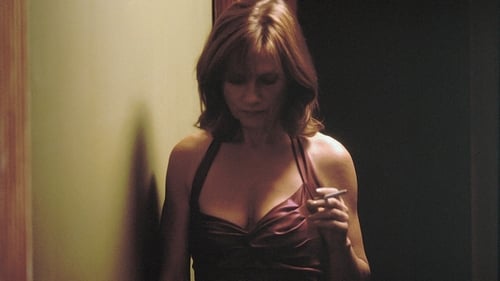
Producer
Pierre lleva, a sus diecisiete años, una vida pequeña, ordenada y casta en compañía de su abuela. El desastre está en Canarias, en casa de sus padres, una pareja peleada y dada al libertinaje. Pierre comienza a vivir con ellos, con Hélène, madre fascinante, femme fatale, con el padre, odiado y al que pronto enterrarán. Hélène arrastra a su hijo al placer, le cede a Réa, antiguo capricho lésbico. Con ella, Pierre descubre el éxtasis, la vergüenza y el respeto. La moral de Hélène, definitivamente relajada, no considera que desear a su propio hijo sea un tabú, ella no lo llamaría incesto.

Self
Documentary that follows events after the fall of Slobodan Milosevic, while looking back on the previous fifteen years, tracing his rise to power. Personal testimony alternates with analysis of a disintegrating society.

Writer
Ten years ago, distinguished French author Alexandre (Alain Delon) exchanged his stressful, hectic life in Paris for a more peaceful existence upon a Mexican hacienda with his wife Ariane (Marianne Denicourt). Lucien (Jean-Pierre Kalfon) also accompanies them. There, Alexandre meets the strange lady-oracle Sonia (Lauren Bacall). As the film opens, the melancholy Alexandre is visited by the sensuous actress Laure (Arielle Dombasle) and her producer Raoul Fillipi (Karl Zero) who is going to make a movie of one of Alexandre's best-loved books. Laure is determined to play the part of the heroine and is willing to resort to seduction to get it. At the same time, Ariane is involved in a passionate affair with French-Mexican seismologist Carlo (Xavier Beauvois). While all of these characters wrangle and tangle with their different agendas, the local residents prepare for a violent revolution. ~ Sandra Brennan, Rovi

Director
Ten years ago, distinguished French author Alexandre (Alain Delon) exchanged his stressful, hectic life in Paris for a more peaceful existence upon a Mexican hacienda with his wife Ariane (Marianne Denicourt). Lucien (Jean-Pierre Kalfon) also accompanies them. There, Alexandre meets the strange lady-oracle Sonia (Lauren Bacall). As the film opens, the melancholy Alexandre is visited by the sensuous actress Laure (Arielle Dombasle) and her producer Raoul Fillipi (Karl Zero) who is going to make a movie of one of Alexandre's best-loved books. Laure is determined to play the part of the heroine and is willing to resort to seduction to get it. At the same time, Ariane is involved in a passionate affair with French-Mexican seismologist Carlo (Xavier Beauvois). While all of these characters wrangle and tangle with their different agendas, the local residents prepare for a violent revolution. ~ Sandra Brennan, Rovi

Writer
The carnage in Sarajevo provides the focus of this French documentary which seeks to call attention to the terrible conflict in the hopes of finally ending it. The film is divided into five parts. Each part covers a time frame ranging from April 4, 1992, the beginning of the war, to the present. The major issues that occur are three-fold. It depicts the systematic genocide of Bosnians, the silence of Western countries, and the determination of the Bosnians to resist. They refuse to be seen as victims, even though the filmmakers portray them so. Also included are the origins and political aspects of the war. It offers interviews with participants. It also reveals how the U.S. State Department censored reports about Serbian death camps.

Director
The carnage in Sarajevo provides the focus of this French documentary which seeks to call attention to the terrible conflict in the hopes of finally ending it. The film is divided into five parts. Each part covers a time frame ranging from April 4, 1992, the beginning of the war, to the present. The major issues that occur are three-fold. It depicts the systematic genocide of Bosnians, the silence of Western countries, and the determination of the Bosnians to resist. They refuse to be seen as victims, even though the filmmakers portray them so. Also included are the origins and political aspects of the war. It offers interviews with participants. It also reveals how the U.S. State Department censored reports about Serbian death camps.

Narrator (voice)
The carnage in Sarajevo provides the focus of this French documentary which seeks to call attention to the terrible conflict in the hopes of finally ending it. The film is divided into five parts. Each part covers a time frame ranging from April 4, 1992, the beginning of the war, to the present. The major issues that occur are three-fold. It depicts the systematic genocide of Bosnians, the silence of Western countries, and the determination of the Bosnians to resist. They refuse to be seen as victims, even though the filmmakers portray them so. Also included are the origins and political aspects of the war. It offers interviews with participants. It also reveals how the U.S. State Department censored reports about Serbian death camps.
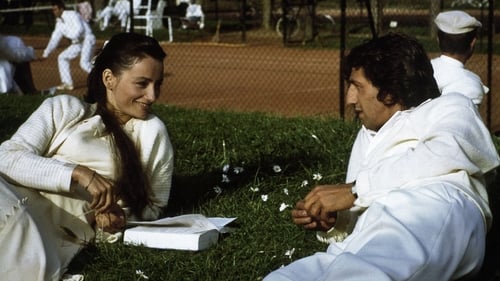
Bernard-Henri Lévy
Salomé Lerner just finished writing an autobiography. She goes to a TV show called "Apostrophes", hosted by French TV showman Bernard Pivot. Pivot then imagines a film that could be created from her gripping story. A film entirely made of music because after seeing the young pianist Erik Berchot, Salomé believes seeing her long lost brother, who was a musician as well. A brother she had lost along with her parents in 1943. However, the Lerners did in fact escape the gestapo and might have based themselves in Paris...













